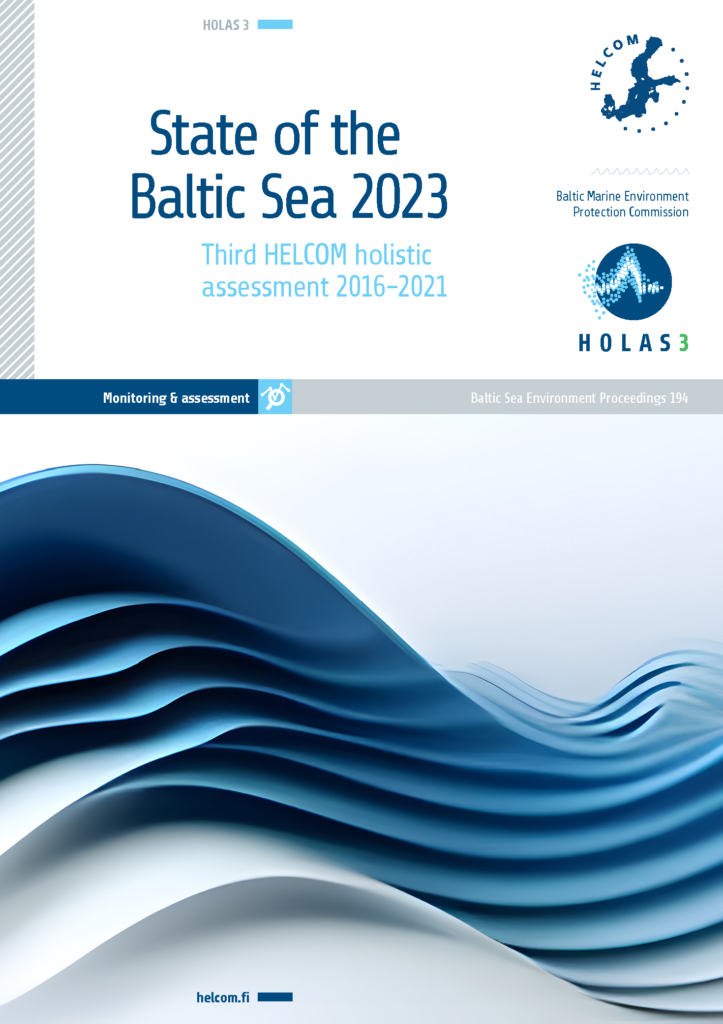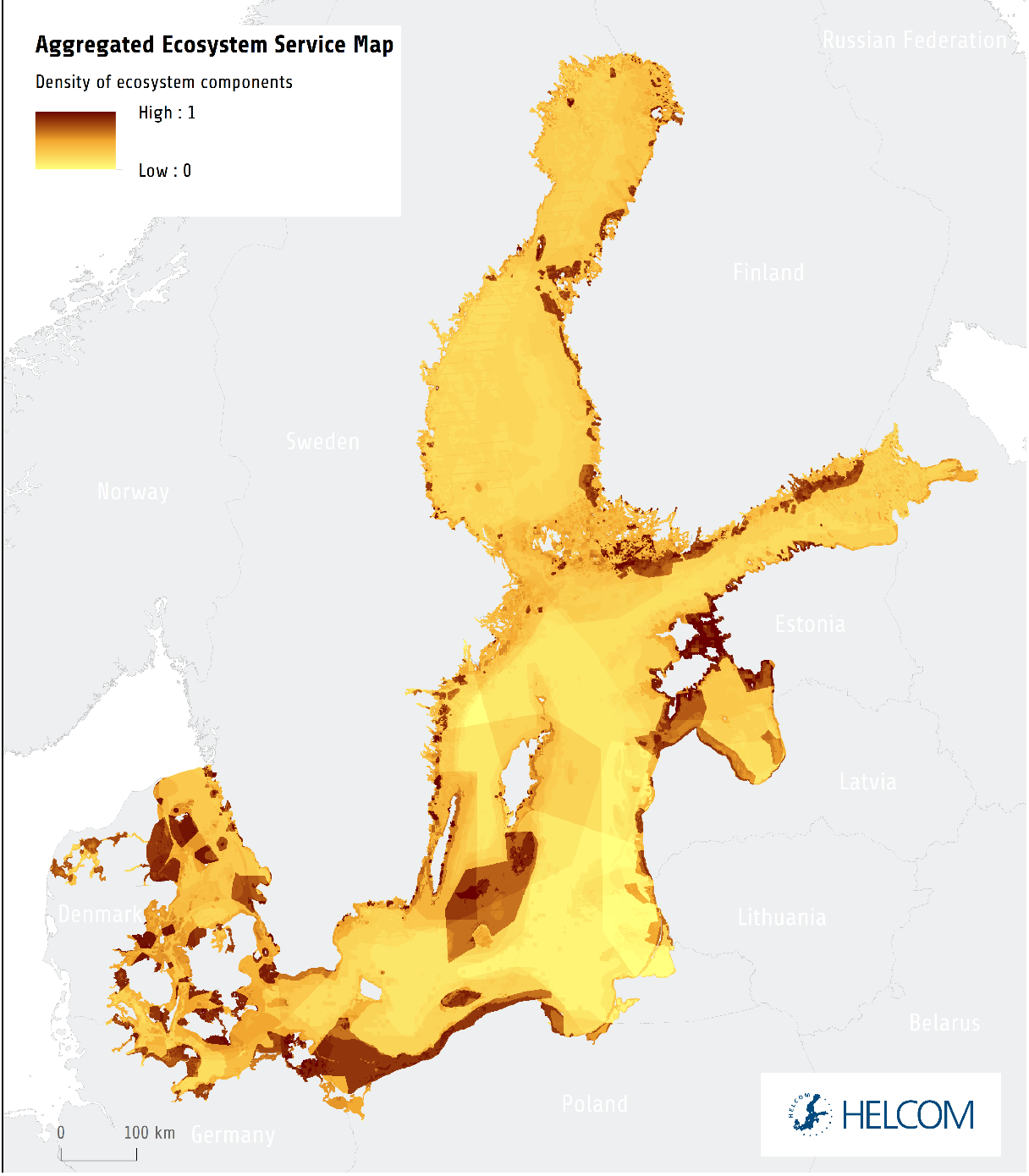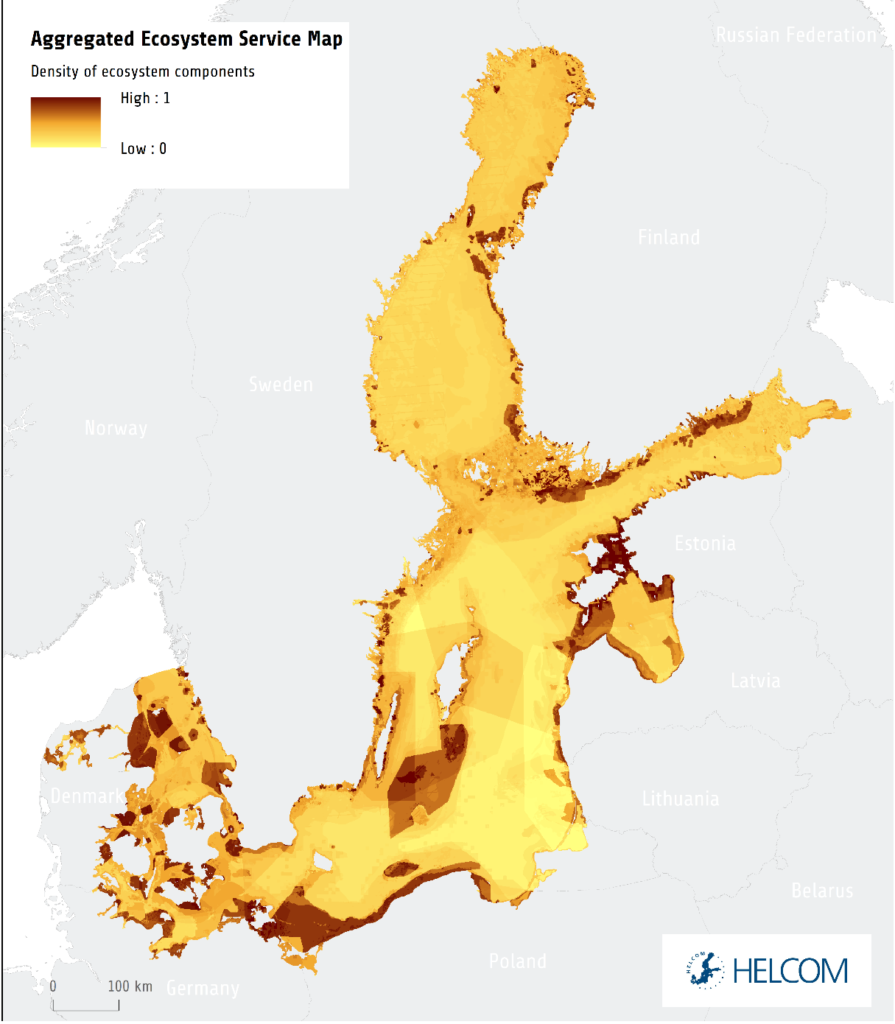SPATIAL ANALYSES OF ECOSYSTEM SERVICES
Spatial analyses of ecosystem services
The status of the environment is directly linked to our use of the sea, which provides us with both direct and indirect benefits. Having a marine environment in good status offers several benefits that are currently not fully provided across the Baltic Sea, such as clear and oxygen-rich waters, healthy fish stocks, safe fish and seafood for human consumption, good quality coasts and beaches, and healthy marine biodiversity.
Reaching good environmental status in national marine waters by 2040 is collectively estimated to be worth 5.6 billion euros per year to society (HELCOM 2023d). Not achieving good status of the marine environment affects different groups of society by, for example, decreasing the opportunities for fishing or causing impacts on human health, including for future generations (HELCOM 2023d).
Ecosystem services is a collective term for all the direct and indirect contributions that healthy ecosystems make to human well-being, as a result of functions and processes in the ecosystem (Potschin & Haines-Young 2016b).
Figure 5.5. Illustration of areas with high potential to contribute to ecosystem services in the Baltic Sea. The map is made from 54 different ecosystem component layers based on their respective contribution to specific ecosystem services. For a more detailed description of the data and analyses, see HELCOM (2013d-e) and Ruskule et al. (2023).

State of the Baltic Sea 2023 — The third HELCOM holistic assessment (HOLAS 3)
State of the Baltic Sea 2023 is a synthesis report that builds on, and integrates, results from a wide range of assessment products produced within the third HELCOM holistic assessment. Its role is to link information from the underpinning assessment products together, thus highlighting the holistic aspects. With this in mind, the summary report focuses on presenting the results and on an in-depth look at why we are seeing these results, providing over-arching context and analysis. The report helps develop a clearer picture of where we are and how things are connected, supporting coordinated and effective measures to strengthen the Baltic Sea environment.



